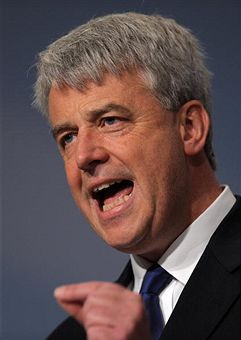 The coalition is facing more protests today over its plans to abolish Primary Care
Trusts. But PCTs are ripe for abolition. Their bureaucracy and management costs have ballooned in recent years and they have been wildly unpopular in some parts of the country for their role in
pushing for hospital closures. They have failed to make the NHS more efficient and innovative and they have been responsible for many of the heart-wrenching cases of patients failing to get drugs
for conditions like cancer.
The coalition is facing more protests today over its plans to abolish Primary Care
Trusts. But PCTs are ripe for abolition. Their bureaucracy and management costs have ballooned in recent years and they have been wildly unpopular in some parts of the country for their role in
pushing for hospital closures. They have failed to make the NHS more efficient and innovative and they have been responsible for many of the heart-wrenching cases of patients failing to get drugs
for conditions like cancer.
In contrast, GPs are one of the most trusted groups in the NHS. Yes, there are examples of poor practice, but generally patients have high respect for their local doctor and the decisions they
make. In turn, most GPs are fed up with having a centralised bureaucracy impinge on their professional judgment. This is why many experts, including Policy Exchange in its 2009 report, Which Doctor?, have recommended for some time that GPs should be in control of the budgets for patients’
care.
But the government faces a real problem in the apparently sudden appearance of this policy. Britons do not respond well to shocks when it comes to the NHS. It is a much-loved institution and we
have a deeply ingrained nervousness about anything that might put it at risk. But the fact that this policy took many by surprise is no cause for panic. GPs have the potential to transform the
NHS.
The brutal facts are that outcomes for patients in the UK are not among the very best in the world because the treatment we get at our local hospital is not always what it should be. GPs see their
patients day in day out. They are much better placed than managers to find new ways to deliver care. And they are much less likely to put up with poor standards. In Cumbria, for example, a recent
report by Paul Corrigan for Demos has shown that GPs have gained more control over commissioning without the need for new legislation. It is early days, but the policy seems to be
working.
Having the support of GPs will be critical to the sucess of nationwide implementation. Policy Exchange is currently working on a project to consider how potential pitfalls can be avoided and how
prospective gains can be realised. If GPs are not on board then we are likely to see a set of new organisations that are, in theory, GP-led but in practice are Primary Care Trusts by another name.
That would be a huge waste of public money. But if it goes well then we could see care provided in more innovative way. We could see our relationship with local GPs strengthened because of the
greater power they have to secure the care we need. And we could see improved results in treatments to ensure that survival rates are world-class.
Eve Atkins is currently working on a project on GP commissioning for Policy Exchange’s Health Unit.






Comments